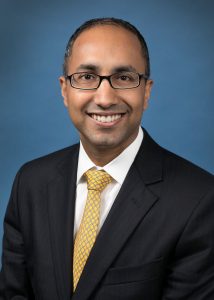Physician Reverses Own Conditions With Integrative Medicine
 Doctors are all healthy, and they rarely get sick. These are common misconceptions you may have heard before. The reality is that, while physicians may have all the information they need to keep their patients and themselves healthy, they often neglect their own health, struggle with work-life balance, and suffer from burnout. There is even a disturbingly high rate of suicide among physicians.
Doctors are all healthy, and they rarely get sick. These are common misconceptions you may have heard before. The reality is that, while physicians may have all the information they need to keep their patients and themselves healthy, they often neglect their own health, struggle with work-life balance, and suffer from burnout. There is even a disturbingly high rate of suicide among physicians.
Marvin Singh, MD, a Diplomate of the American Board of Integrative Medicine® (ABOIM®), knows firsthand the health struggles that even the most knowledgeable physicians can face. He told his story in a recent mindbodygreen article.
“A few years ago,” he says, “I was a bit over 200 pounds and my cholesterol panel was out of whack. My liver enzymes were well over the normal limit, and my doctor told me I had a fatty liver.”
Dr. Singh was shaken by his diagnosis. Knowing that in some people, fatty liver can cause hepatitis and lead to severe liver damage, he searched for a solution. “I didn’t want to develop diabetes or have heart attack, which I was at risk for,” he says. He began reading about lifestyle changes that could improve wellness and eventually restore his health, although, as a conservatively trained doctor, he was skeptical about the more holistic approaches. Researching integrative medicine, however, he was surprised, and encouraged, by the amount of solid data that supported it. So, in a quest to learn more, he enrolled in a two-year integrative medicine fellowship under Dr. Andrew Weil at the University of Arizona in Tucson.
It was there that he embarked on the journey that changed his life. He learned about the health benefits of tai chi, yoga, mindfulness, proper nutrition, and exercise, as well as the many nutritional supplements and natural therapies available for common ailments. He learned, for instance, that by taking DGL (deglycyrrhizinated licorice) instead of antacid, he could effectively treat his heartburn. Motivated by his health improvements, he committed himself to a healthy diet, with an emphasis on local and organically grown whole foods. Helped by his family, he cleared his pantry and refrigerator of sugar-sweetened beverages and cut back on processed foods. He increased his fiber intake and focused on consuming only healthy sources of fat. After a few weeks, he lost 10 pounds.
He began practicing daily meditation, became more physically active, and spent more time outdoors. In short order, his sleep improved and his cravings for carbohydrates subsided. Three months after beginning his health journey, he lost 40 pounds and was more energetic and mentally sharper. He also no longer needed his prescription antacid. And his cholesterol panel and liver enzymes? They had returned to normal levels. What’s more, Dr. Singh says, “I felt better than ever.”
Now that he has restored his health through natural means, Dr. Singh works to raise awareness about the life-changing benefits of a more holistic approach to medicine. The ABOIM, a Member Board of the American Board of Physician Specialties® (ABPS), supports the mission of dedicated professionals like Dr. Singh who serve as an inspiration for their patients and other physicians by supporting healthy living and wellness through integrative health care.
If you would like to learn more about the practice of integrative medicine, or the ABOIM, contact the ABPS today.






